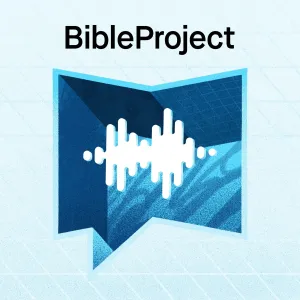
Sermon on the Mount E8 – Why does Jesus call his followers salt and light? In the Hebrew Bible, salt is a metaphor for God’s long-lasting covenant with Israel, connected to priestly sacrifices, ritual purity, and social bonds. And the Hebrew word for...

Sermon on the Mount E7 – What will it cost us to live like Jesus in our world? In the third and final triad of the Beatitudes, Jesus declares that the good life belongs to the peacemakers. But making peace Jesus-style will mean conflict, pain, diffic...

Sermon on the Mount E6 – What does it look like to have our desires and actions completely aligned with God’s will? In the second triad of the Beatitudes, Jesus paints a picture of the kind of people God is forming in the Kingdom of the Skies. In thi...

Sermon the Mount E5 – What does it mean to be poor in spirit, mourning, and meek? Jesus uses these words in the opening of the Sermon on the Mount, and the guys examine them in biblical Greek and Hebrew, finding that a better translation may be “powe...

Sermon on the Mount E4 – What does Jesus mean when he calls people “blessed” in the first section of the Sermon on the Mount? The Greek word translated as “blessed” is makarios, and its Hebrew equivalent is ashrey, which means “the good life.” But th...

Sermon on the Mount E3 – The Sermon on the Mount is one of five major speeches Jesus gives in the Gospel of Matthew, and there are many similarities between these speeches. What is Matthew doing in his gospel that is unique from the other gospels? An...

Sermon on the Mount E2 – As a Jewish rabbi, Jesus was immersed in the Hebrew Bible, or what Christians often call the Old Testament. The Hebrew Bible tells the story of God working with ancient Israel to bring about his Kingdom. And in the New Testam...

Sermon on the Mount E1 – Most of us have probably heard sayings from Jesus’ famous teaching, commonly called the Sermon on the Mount. It's only 100 verses, but the sermon has created an enduring legacy that has shaped countless lives throughout histo...

In our final episode of 2023, Tim, Jon, and BibleProject CEO, Steve, celebrate everything we worked on this year and the patrons who made it possible. The guys then talk about everything coming up in 2024 and beyond, including a sneak peek of a speci...

Does the dragon always deceive humans into sinning? Can we become agents of chaos even when our intentions are good? What does it mean that Satan “entered into” Judas at the last supper? In this episode, Tim and Jon respond to your questions from the...

In this series, we’ve talked a lot about chaos—chaos waters and the great chaos monsters of the deep. In this episode, Tim and Jon interview an expert with a unique vantage point on the chaos of the cosmos, NASA astronaut Tracy Caldwell-Dyson. Listen...

The Revelation, the last scroll in the Bible, is an apocalyptic vision about the reordering of the entire cosmos. And like the conclusion of any good story, it brings together all the themes in the Bible, including the theme of the dragon. In this ep...

The biblical theme of the dragon is a way to think of a personal foe, the Satan, and an impersonal force—the relentless power that exerts itself over humanity and all of creation. In this episode, Tim and Jon look at how the Apostle Paul talked about...

The theme of the chaos dragon runs all through the story of the Bible—along with the biblical authors’ expectation of a coming king who will one day slay the dragon for good. That dragon-slaying king is Jesus, but the way he defeats the dragon is not...

As we’ve traced the theme of the chaos dragon in the Bible, we’ve come to expect what the biblical authors expect: a dragon-slaying king to come. When the gospel authors introduce us to Jesus, they’re quick to show that Jesus is human, yet he wields...